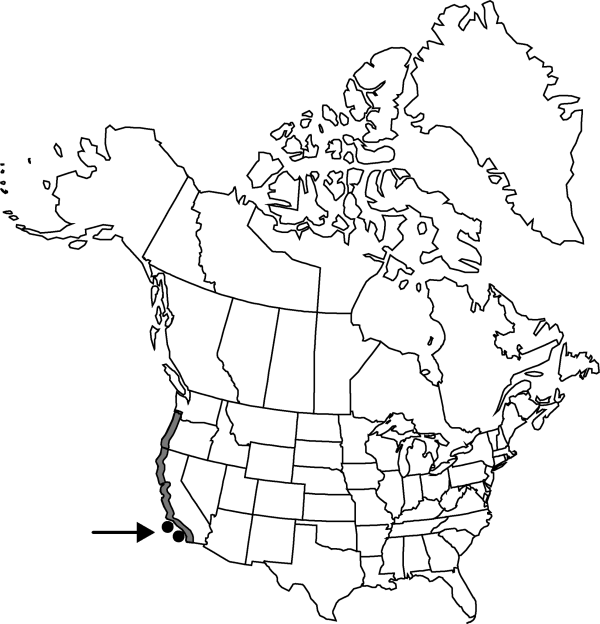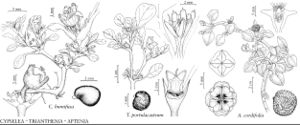Difference between revisions of "Aptenia cordifolia"
Gartenflora, 57: 69. 1928.
Common names: Baby sun-rose
Basionym: Mesembryanthemum cordifolium Linnaeus f. Suppl. Pl., 260. 1782
FNA>Volume Importer |
FNA>Volume Importer |
(No difference)
| |
Revision as of 20:59, 24 September 2019
Plants short-lived. Stems 3–6 dm; internodes 1–5 cm; often rooting at nodes. Leaf blades 1–3 × 0.5–5 cm, minutely papillate, appearing smooth. Inflorescences solitary flowers; axillary pedicel 8–15 mm. Flowers: hypanthium 6–7 mm; calyx lobes 2–5 mm; petals 80, reflexed, pink to purple (red in hybrid cultivar “Red Apple”), 3–4 mm; staminodia 50, erect, white, 3 mm. Capsules 13–15 mm. 2n = 18.
Phenology: Flowering spring–fall.
Habitat: Disturbed places, coastal bluffs, margins of coastal wetlands, 0-100 m
Distribution

Calif., Oreg., Europe (British Isles), Africa, Australia.
Discussion
The flowers of Aptenia cordifolia open during the bright hours of the day.
Selected References
None.
Lower Taxa
None.
